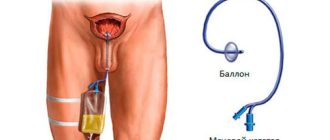Symptoms of ADHD in Adults
The symptoms of ADHD in adults may be a lot different than those in the younger people. These behaviors could be caused by many factors. People can experience anger and hyperactivity due to their mental or physical symptoms of adhd health. These conditions can be hazardous in the event that they are not treated.
Disorganization
Adults suffering from ADHD tend to experience disorganization. They struggle to keep the track of important things or tasks, as well as keeping track of plans. This can have a negative impact on their interactions and work.
There are many ways to manage adhd symptoms adults nhs. It is important not to try to change too much too fast. To avoid chaos, it is important to manage expectations.
A routine is among the best ways to stay clear of chaos. Plan out activities and schedule events with family members and friends. You can also develop positive relationships. The goal is to make your office or home more comfortable.
Another method to keep an organized space is to keep clutter at bay. Instead of having things pile up put them in clear and sensible containers. Clear plastic storage bins with doors that can be seen make an excellent choice.
Color-coding is a different method to organize your space. You might consider vertical filing systems or trays in case your space is crowded.
People with ADHD are also more likely to lose valuable items. It is not unusual for those with ADHD to lose legal documents, money and other valuable items. This can result in many hours of wasted time.
Hyperactivity
The first step to diagnose adhd types and symptoms is to seek help from a professional. A doctor may assess you and talk to your family. They may also ask you for a the checklist of symptoms.
The symptoms of ADHD include impulsive behavior as well as restlessness and inattention. They can impact your work and daily life. Your personal history, school experience and your family history will be considered by your health medical professional.
If you’ve noticed you’re having difficulty sticking to a routine, your work tasks aren’t well-organized, or your relationships aren’t working it’s best to seek out a professional diagnosis. ADHD medication is another option.
ADHD can be difficult due to of the many factors which can contribute to it. These include environmental factors, like toxins, and genetics.
ADHD is usually treated by primary care physicians and mental health specialists. Your doctor may suggest you consult an expert. In addition, you should disclose any medications you are taking, particularly stimulants, to your physician.
In addition to medications Therapy can be helpful. Cognitive behavioral therapy can assist you to manage your behavior. It can also be combined with prescription drugs to help you focus.
Impulsivity
Adult ADHD symptoms include impulse control. It is defined as the inability to take a moment to think before taking a decision. There are a myriad of ways that impulse-driven behavior can occur and can be triggered by numerous circumstances.
Adults with ADHD also have difficulties with finances and career, as well as difficulties sticking to a program and being organized. For instance, it could be difficult to meet deadlines and comply with corporate guidelines.
A number of studies have examined the ways in which the two conditions of impulsivity and ADHD connect. Researchers have discovered a connection between an impulsive behavior and functional impairment. Researchers also discovered a connection between impulsivity, functional impairment, and emotional dysregulation.
There is also a relationship among impulsivity, neuroticism, and self-directedness. Both impulsivity and neuroticism are related to self-directedness and emotional-regulation.
The genome-wide association analysis was utilized in the study. It showed a high heritability for an impulsive personality. People who scored higher on this measure had lower self-directedness.
Among the subtypes of ADHD, the inattentive and impulsive/hyperactive types have similarities to each other. Both subtypes, however, come from different genetic backgrounds.
Adults suffering from ADHD tend to act in impulsive ways, however they can manage their impulses. They might need to consider the consequences in the event that they are forced make a decision. They could regret later if they take a rash decision.
Fidgeting
Fidgeting is a common behavior in those suffering from ADHD. Fidgeting is a behavior that causes people to want to tap their feet or move their. There are many reasons behind fidgeting. Fidgeting can be triggered by anxiety and anxiety. You may feel anxious when trying to focus on something.
adult adhd symptoms in men ADHD symptoms could indicate that you need to be diagnosed. This will help you determine the root cause of your issues, and also provide relief.
Adults who have ADHD frequently have trouble adhering to a routine especially in the workplace. They may struggle to keep the track of important appointments and tasks.
While people with ADHD might find it difficult to concentrate but they shouldn’t feel ashamed of their behavior. Rather, they should see it as a response to stress or a method to keep their focus in stressful situations.
Adult adhd burnout symptoms symptoms can often be subtle and can be confused with anxiety or other health problems. However, there are solutions to treat the problem. The first step is to identify your specific fidgeting behavior.
The next step is to manage your fidgeting. Once you are aware of your habits, you can start to change them.
Anger
Anger is an indication of ADHD. While anger isn’t always bad, it could result in destructive behavior. There is good news, there is a variety of adult Adhd Symptoms test ADHD treatments that can help you manage your feelings.
In addition to taking medicines, you can also try behavioral and cognitive remediation. The behavioral therapy can include the development of new strategies for coping and strategies to deal with anger.
Mindfulness practices can help some people calm down. They can do deep breathing exercises, meditation, or even visualization.
It is a good idea to find a safe space to unwind. This can be as simple as an empty bathroom or a room far from any other people. It is also crucial to be aware of how many times you can count before responding to something.
Another thing to keep in mind is that you should not be feeding your anger. This could cause you to get angry again.
Anger is a natural emotion. It can be a motivator to address issues and respond to stressful situations. If you do it in an unhealthy way it could cause harm to your health and relationships.
Stress management includes eating healthier and exercising more often, as well as getting enough sleep. It is crucial to recognize that ADHD sufferers might not be able to fully manage their anger.
Physical, mental, as well as emotional health issues
ADHD adults face a myriad of physical and mental issues. These difficulties can be managed through behavioral therapy. However, if they continue to interfere with their lives, they might require professional assistance.
Many adults suffer from ADHD together with other mental disorders. They might also be suffering from issues with anxiety or substance abuse. A thorough evaluation is necessary to determine the root cause of the disorder.
A thorough evaluation will consist of medical examination as well as a review of the patient’s medical history, and the patient’s symptoms. The provider will also examine the person’s behavior as well as mood. The doctor may also ask permission to talk with relatives.
Most often, people suffering from ADHD experience significant mood fluctuations. This can make it difficult to prioritize and plan tasks. Moreover, people with ADHD are prone to quick decisions that could be harmful. If a person is constantly making decisions based on impulsivity this can impact their job or schooling, among other areas of life.
There are many options for therapy and medication. One form of treatment is called cognitive behavioral therapy. It helps people overcome issues with concentration and attention, and learn to manage the risky behavior.
Treatment options
If you are an adult with attention deficit hyperactivity disorder (ADHD) There are treatments available to help you manage it. Many people take medication, and some may also seek therapy. It is important to remember that every person’s treatment is different. Talk with your physician to determine the most suitable treatment for you.
First, you must recognize the signs. ADHD symptoms can be difficult to handle, especially at school or at work. They can also cause relationships to be damaged.
The first option you could consider is one that stimulates. The effects of stimulants are increased levels of brain chemicals that are associated with self-regulation and concentration. The FDA has approved a variety of medications to treat ADHD.
Antidepressants are a different type of medication. Antidepressants do not have the same effects as stimulants. Some side effects like constipation and stomach upset can be seen in some people.
Patients who are unable to take stimulants or have co-occurring mental illnesses, may be prescribed non-stimulants. There are a variety of nonstimulant drugs such as atomoxetine guanfacine and methylphenidate.
Before taking any medication, it’s important to consult your doctor. There are many side effects that can be experienced with medications, but they shouldn’t be a cause for concern.



